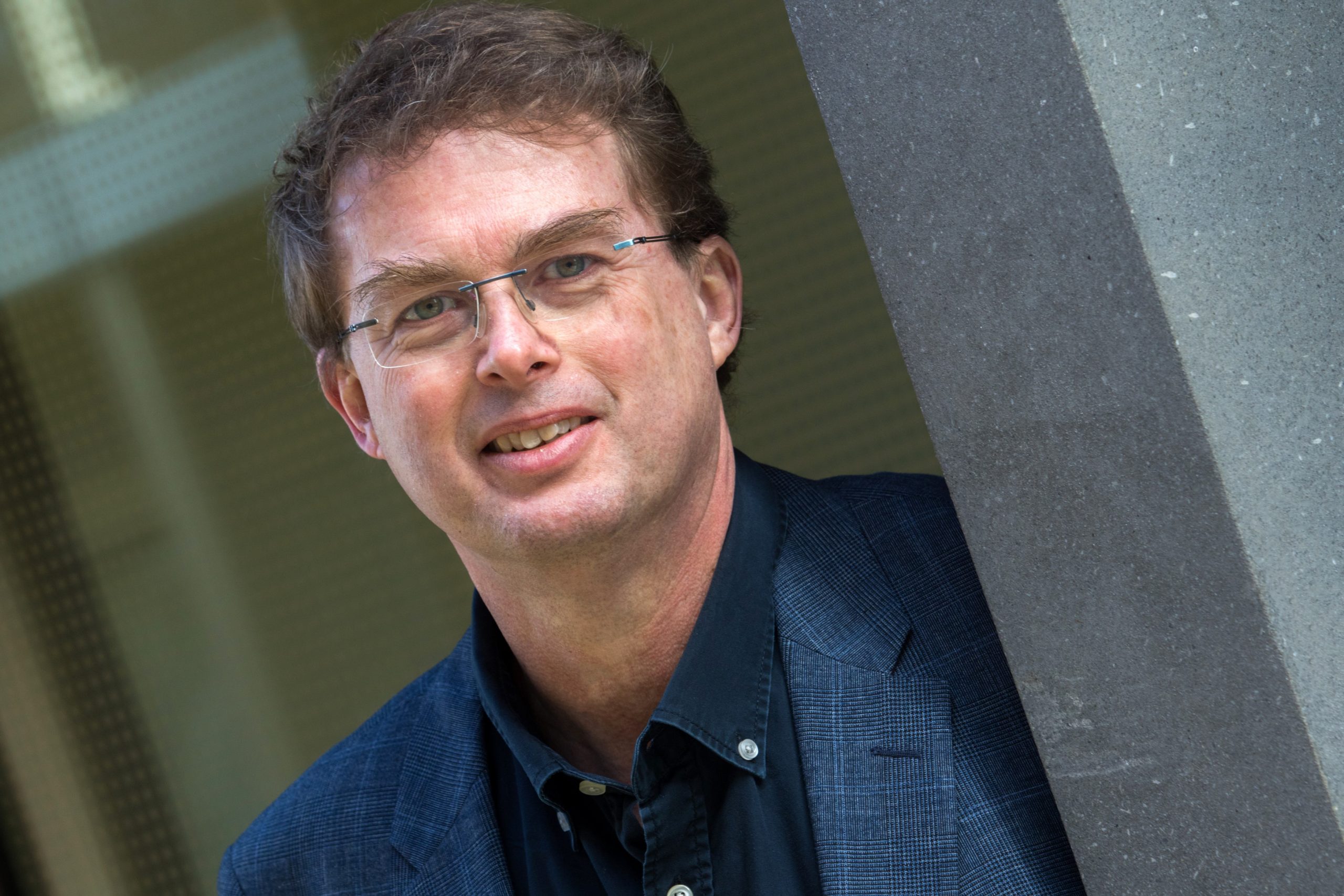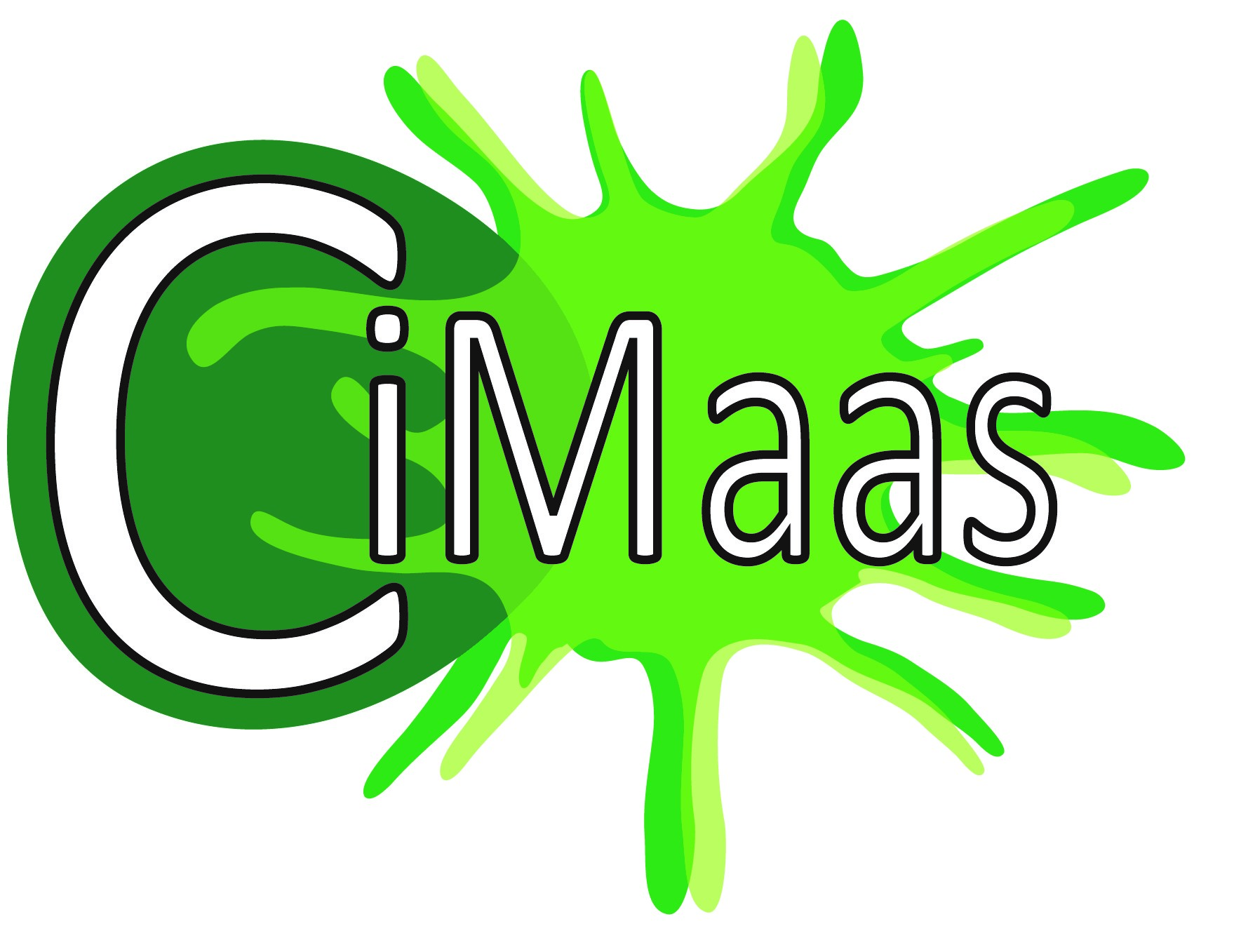“Our goal at CiMaas is to contribute to the fight against cancer. Too many people die because of this severe disease. Twenty years ago, we came to the point in our career that we thought there were only two options left, either we could wait and see if others would find a better cure for cancer or start the research ourselves. We chose the latter one and grew from a university department, via a spin-off into a company that now is waiting for approval in order to start our promising clinical trials with the therapies developed in our own lab”

Meet Dr. Wilfred Germeraad – CSO of CiMaas
In the midst of the lockdown due to the resurgence of the coronavirus, at an almost deserted Brightlands Chemelot Campus in Sittard – Geleen, we were warmly welcomed by Dr. Wilfred Germeraad CSO of CiMaas. From the moment Dr. Germeraad started telling about himself and CiMaas one gets inspired by his passion for his work and research. Born in Rotterdam and raised in Zaandam, Dr. Germeraad decided already at an early age that he wanted to study medicine but unfortunately, he didn’t get admitted and followed a different path. As an alternative, he chose to study Medical Biology at the Free University in Amsterdam, where he discovered his passion for research. “Compared to Medicine, the satisfaction of Biomedical Sciences lies in the fact that thanks to research you can cross the border of knowledge, which allows you to create a solution or product that hopefully more people can benefit from”. Doing research in order to find better solutions and discover new things to treat cancer has been leading in his career. Already at the Free University, his interest in immunology started and the combination with cancer gradually became his focus.

Immunology and the founding of CiMaas
After his study at the Free University of Amsterdam his international experience started. Dr. Wilfred Germeraad spent more than six years in Japan where he got his PhD in immunology, he then flew to the other side of the world, to California where he lived for two years in Los Angeles working as a postdoc. His homeland called him back at first in Rotterdam and via Utrecht, he landed in 2003 in Maastricht. The place where he now so gladly lives and works. It was in Maastricht where he started his collaboration with Prof. Dr. Gerard Bos, internist – hematologist and now CEO of CiMaas. Prof. Dr. Bos has a wide and impressive career in immunology. He was born in Wageningen but studied Medicine and got his PhD in Immunology in Maastricht. He was trained as a Hematologist in Rotterdam and in 2000 he started as an internist-hematologist in Maastricht. In this period of time, he started the preclinical research with focus on cell therapy: development of cancer vaccines and the role of killer cells in the fight against cancer. Dr. Wilfred Germeraad was asked to join his research team and he happily accepted the position. In 2015, CiMaas started as a spin-off from the University of Maastricht where they worked for 20 years on Cellular Immunotherapy (CI in CiMaas).
Brightlands home to CiMaas
The Brightlands campuses are an inspiring and innovative environment, characterized by spin-off companies and start-ups that believe in working and achieving innovation together instead of alone. CiMaas believed in their open innovation community in the field of biomaterials and life sciences and decided to locate their company on both the Brightlands Maastricht Health Campus as well as their GMP facility at the Brightlands Chemelot Campus. Brightlands offers numerous facilities where all start-up and spin-offs can benefit from. Not only from a real estate point of view but they can also benefit from the services freelancers that are located on the campus offer on an hourly basis. It’s the ecosystem within Brightlands and the goal to innovate together that made CiMaas decide to locate their GMP facility on the Brightlands Chemelot Campus.
Tumor target dendritic cell vaccination platform
CiMaas is currently developing a vaccine that is based on dendritic cells that activate the immune system and therefore activate strong tumor antigen-specific cells (also known as killer T-cells) that kill cancer cells. The role of the dendritic cells is key in this method. From the patient’s blood monocytes, dendritic cells are generated to activate the antigen-specific killer T-cells. The dendritic cell functions as an instructor, they train and present foreign antigens to T-cells so these can multiplicate and attack specific tumor parts. As a (therapeutic) vaccine (train the immune system) these cells are injected back into the patient in order to carry out the work they were trained for: attacking the tumor. CiMaas’s innovation relies on the maturation cocktail that is used to create the best possible dendritic cells. It’s the process of training and the passing of specific tumor-related information from the dendritic cell to the T-cells what makes, this not so logical process, unique and reproducible.
The process is based on an as completely closed system as possible. Currently, the process still contains a few open steps meaning that every action has to be carried out in a B grade cleanroom in order to reduce and preferably eliminate, all possible risks of contamination. By developing a fully closed system, CiMaas hopes that in the future the whole process can be carried out in any place in the world and doesn’t require necessarily a cleanroom. This would mean that costs can be reduced significantly, which would make the vaccine more affordable. CiMaas is first focusing on lung cancer in particular but given the fact they’ve created a solution that can be used as a platform technology, it should be possible to use this method also for other types of cancer. Given the fact, each type of cancer can differ from person to person, and by adding patient-specific tumor tissue to the process, the cure could eventually be fully personalized in the future. With further technological improvements and innovations as well as improvements in automated screening and bioinformatics it could allow for personalized medicine to become more and more a reality.
Today CiMaas is waiting for a few more official approvals in order to finally start their clinical trial. Phase 1 of the trial will focus mainly on toxicity, even if it has already been proven multiple times that dendritic cells aren’t toxic, the vaccine will be tested for the first time on lung cancer patients who have received a standard therapy also known as “checkpoint inhibitor therapy”. This type of therapy helps to keep the immune system active by keeping the T-cells active in order to fight against the tumor. CiMaas wants to add the vaccine to this type of therapy in order to make the immune response more specific, stronger, and long-lasting, maybe even leading to cure. If this phase is successful, they will pass on to the second phase where they will start testing on a larger number of patients. If these trials will be a success, Dr. Wilfred’s personal goal will also be achieved: actually contributing to fight against cancer!
The importance of congresses
Due to COVID- 19 most congresses are currently held online, they remain interesting from a scientific content point of view but in the end, Dr. Wilfred Germeraad prefers to attend them physically. Online congresses would be an extra for him, meaning that he could choose to attend congresses he normally wouldn’t go to. Also, the fact that you can attend only some parts of the congress is interesting and adds value to online conferencing.
“For me, the importance of congresses is the opportunity to share scientific knowledge but above all networking is the most important part of conferences. It’s by meeting people in person that points of view are shared, new ideas arise and collaborations start. It even offers job opportunities, in fact, thanks to networking on a congress I found my job at Maastricht University ultimately leading to establishing CiMaas.”
Maastricht City of Health and Materials
As for the city of Maastricht, he finds it a wonderful place to work and live. Maastricht is compact and has a great bourgondic character with its many restaurants and bars. The MECC exhibition and congress center is located near to the city center and a perfect place to host a congress. The university, laboratories, and several other facilities are all close to each other. Choosing Maastricht as your congress destination, sharing knowledge and pleasure will go hand in hand.
